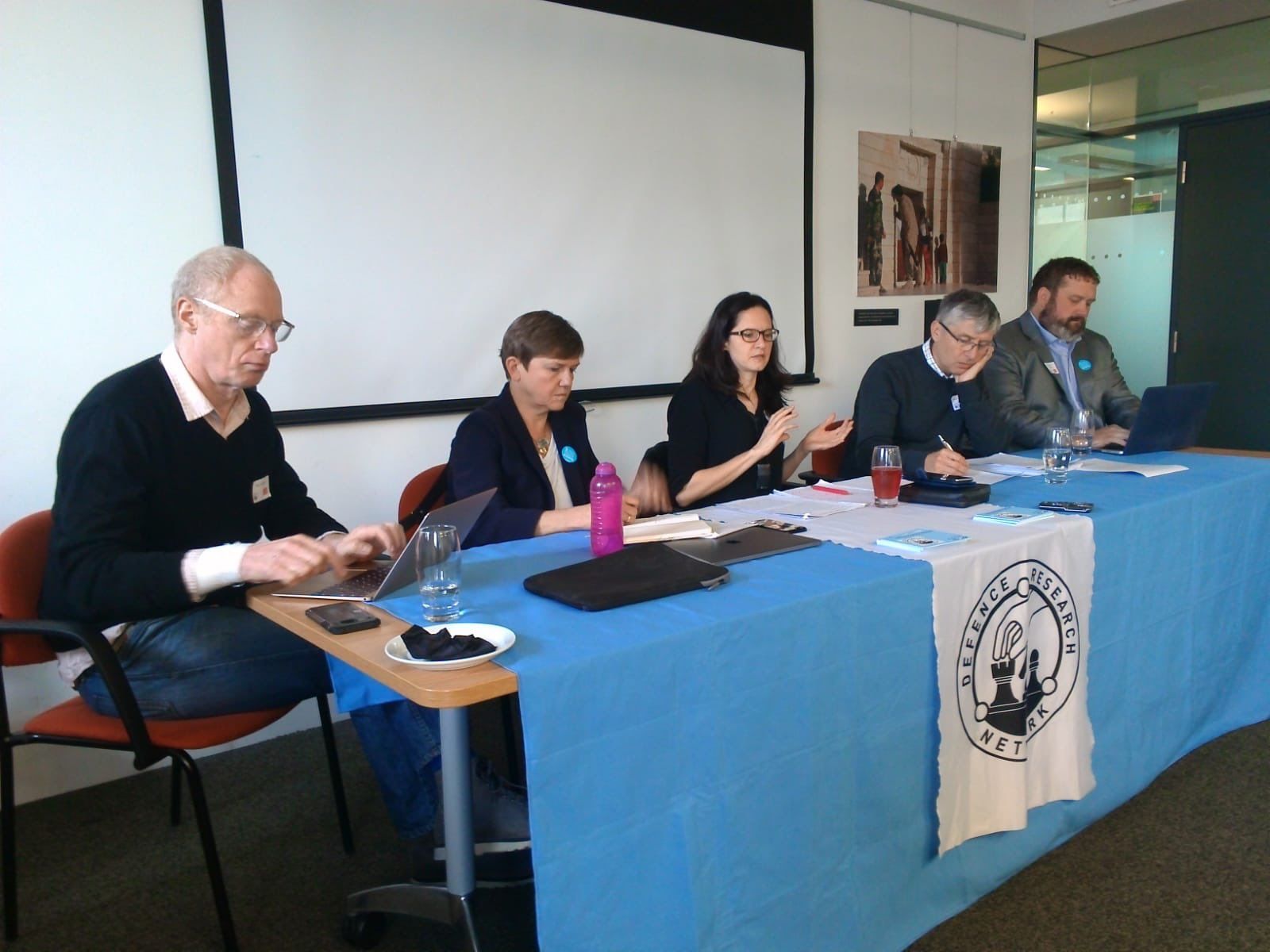By Hannah West and Sophy Gardner
This blogpost was first shared here and picks up from the debate captured by two previous events: a panel discussion by Ben Schrader, Daphne Inbar and Aviad Levy at EISA in September 2018 on military veterans in International Relations and Critical Military Studies (discussed on this blog post) and a workshop held in Bristol in October 2018 reflecting on the positionality of the veteran-researcher (discussed on this blog post).

What is the value of military experience in scholarship? This complex and long-running debate has been a feature of the discipline of War Studies since its inception, embodied in the figure of Sir Michael Howard himself. Traditionally, the discussion has focused primarily upon how individual experiences of war have shaped subsequent scholarly trajectories. Yet as modern armed forces espouse the importance of critical thinking, and increasingly seek to provide a wider range of graduate and postgraduate educational opportunities for serving personnel, we felt it was the ideal opportunity to adopt a more diverse and wide-ranging approach to the contribution and experience of the ex-military-scholar.
On 19 November 2019, the Defence Research Network hosted a series of panels exploring ‘The Voice of the Veteran as Researcher’ and engaging with the following questions:
- What is the value of war experience as the basis of scholarship?
- What do veterans’ voices add to critical commentary on war and the military that other voices might miss?
- How does the scholarship of veterans differ methodologically?
- How does engaging with academia affect veteran’s reflections on the military and their service?
- What are the cultural barriers to veterans participating in the academic community?
- What are the blind spots for veterans researching the military/defence?
- How do veterans engage with politics and critical practice following their transition from service?
- Is there a danger of/how do we avoid exploiting our own and other veteran’s experiences?
Reflecting our recent partnership with the Defence Studies Department, the event was held at Kings College London and preceded by a small workshop for contributing authors to a Special Issue of the Critical Military Studies journal on the same subject at which proposed articles were reviewed. The afternoon opened with the presentation of these papers by Paul Higate, Neil Jenkings, Ben Schrader and Sophy Gardner to the wider audience who enjoyed a lively exchange on the subject. Their critical papers asked questions about the notion of military pride, teaching war, critical research and the female veteran and a veteran-centred view of fratricide. The concepts and viewpoints put forward by the panel exposed some differences amongst the audience around the idea of criticality and what it means to be a veteran when researching one’s military service. Question topics ranged from the concept of demilitarisation, to the perpetuation of imperialism, and the difference between criticality and negativity.
The second panel brought together a group of veteran researchers at an earlier stage of their research journey, who reflected on their experiences of negotiating their identities as veterans and researchers. As this group – Julie Marionneau, Paul Barnes, Ian Westerman, Darryl Cathcart and Rob Clark – reflected on how their military service has affected their research they brought a diversity of experiences. The panel ranged from those who were still serving or recently left, from the British military or overseas and from a range of ranks which exposed different challenges from the difficulty of being dismissed as a credible contributor to academic debate if not an officer, to the extent to which one is defined by one’s veteran status and the privileging of combat experience.
The final panel explored the use of creative methods to find voice as a veteran researcher. David Jackson opened the final panel with a pre-recorded video filmed on set of his tour of Argentina with the acclaimed play Minefield with a letter to academia challenging us to think about what form knowledge takes. This was followed by a folk music video by Hannah West reflecting on her military service as gendered. An ex-Parachute Regiment turned photographer, Stuart Griffiths, shared how he had taken photographs to make sense of what he was seeing and how he had come to see the value of capturing soldier’s experiences in this way. Finally, Dudley Giles discussed the challenges of collecting oral history in recent conflicts with a warning gleaned from his own experiences about how this can be turned against the speaker. Once again, the audience asked some challenging questions which helped develop the debate around these diverse creative methods. The panel presentations and discussions were enhanced by a large and engaged audience to whom we were very grateful for their contributions.
We are now working on putting together a Special Issue of the Critical Military Studies Journal on the Voice of the Veteran as Researcher bringing together full articles and shorter, more creative pieces. The Special Issue will explore further these questions of criticality, positionality and reflexivity asking what they mean for ways of understanding the military and why we need to hear the voice of the veteran.
